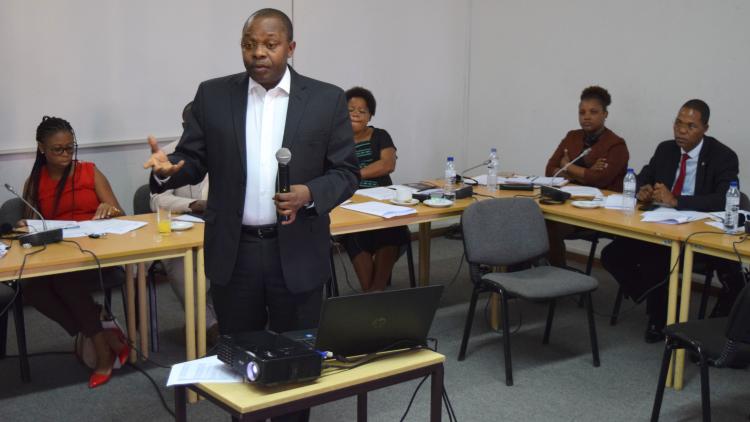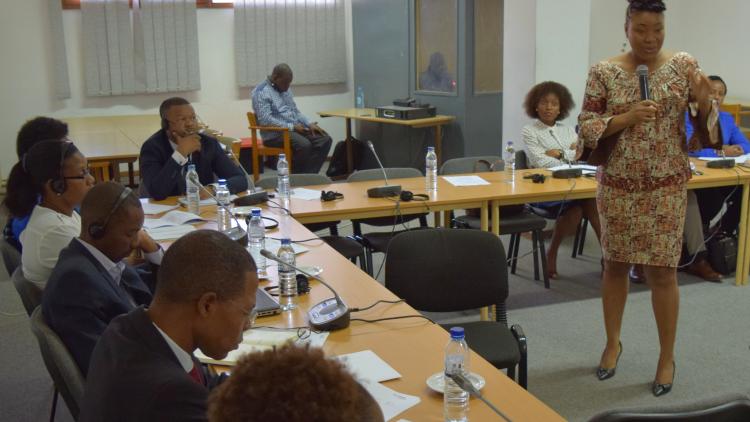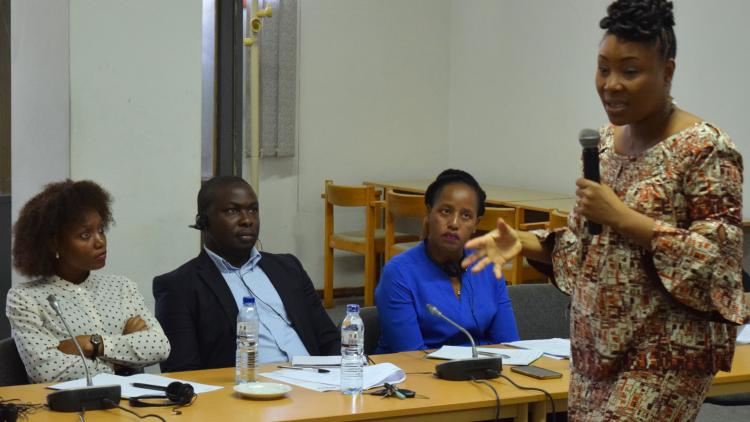Capacity-Building Seminar on Investment Treaties and Contracts – Maputo, Mozambique
IISD and the Agency for Investment and Expert Promotion (APIEX) of Mozambique co-hosted a capacity-building seminar on investment treaties and contracts in Maputo, Mozambique, from April 18 to 20, 2018.
IISD and the Agency for Investment and Expert Promotion (APIEX) of Mozambique co-hosted a capacity-building seminar on investment treaties and contracts in Maputo, Mozambique, from April 18 to 20, 2018.
[Ver texto em língua portuguesa – abaixo.]

The workshop covered a variety of topics, including:
- Origin and characteristics of the international investment regime
- Role of investment treaties in the attraction of FDI in developing countries
- Analysis of key provisions of investment treaties
- Challenges and risks of investments treaties
- New approaches at national, regional and international level
- Update on ongoing investment negotiations and processes to reform the international investment regime
- Best practices in investment treaty negotiations
The workshop provided also an opportunity for participants to reflect on a strategic roadmap for reform of the country's policy on investment treaties.
The meeting was attended by 19 participants, including representatives of APIEX and several other agencies of the government of Mozambique involved in investment negotiations and disputes. Participants highlighted that the workshop had high quality and was very useful to raise awareness and build capacity among them on current issues in investment law and policy.
This event was part of IISD’s investment-related advisory services and capacity building work.
Seminário de Formação em Matéria de Tratados e Acordos Internacionais de Investimento – Maputo, Moçambique
O IISD e a Agência para a Promoção de Investimento e Exportações (APIEX) de Moçambique co-organizaram um seminário de formação em Maputo, Moçambique, sobre tratados e contratos de investimento, de 18 a 20 de abril de 2018.
O seminário, organizado em língua portuguesa, cobriu uma variedade de tópicos, tais como:
- Origem e características do regime internacional do investimento estrangeiro
- O papel dos tratados de investimento na atração de investimento direto estrangeiro (IDE) a países em desenvolvimento
- Análise das principais cláusulas de tratados de investimento
- Desafios e riscos de tratados de investimento
- Novas abordagens nacionais, regionais e internacionais
- Actualização sobre negociações em curso e processos para a reforma do regime internacional do investimento estrangeiro
- Melhores prácticas nas negociações de tratados de investimento
O seminário também proporcionou uma oportunidade para os participantes refletirem sobre um roteiro estratégico para a reforma da política do país sobre tratados de investimento.
A reunião contou com 19 participantes, incluindo representantes da APIEX e diversas outras agências do Governo de Moçambique envolvidas em negociações e disputas de investimento. Os participantes destacaram que o seminário teve alta qualidade e foi muito útil para conscientizar e construir capacidades em matérias atuais de direito e política do investimento estrangeiro.
Este evento fez parte do trabalho do IISD em serviços de assessoramento e construção de capacidades (página em inglês) em matéria de investimento.
Additional downloads
Upcoming events
Building Bridges: The State of Nature-Based Investments
Join us for a panel at the Building Bridges conference in Geneva, Switzerland, to discuss the state-of-play of nature-based investments and the potential opportunities they present.
Through Her Lens: Women leading change in sustainable agriculture and market inclusion
Despite the critical role that women play in agricultural production, they still do not have equal access to global agricultural supply chains on terms that benefit them.
A Municipal Perspective on the Value of Natural Infrastructure
This webinar will showcase examples the cost-effectiveness of natural infrastructure from a municipal perspective. Focusing on what municipalities need—what evidence and numbers they rely on, and what tools and planning processes are required to ensure that natural infrastructure is assessed alongside traditional infrastructure for cost-effectiveness.


